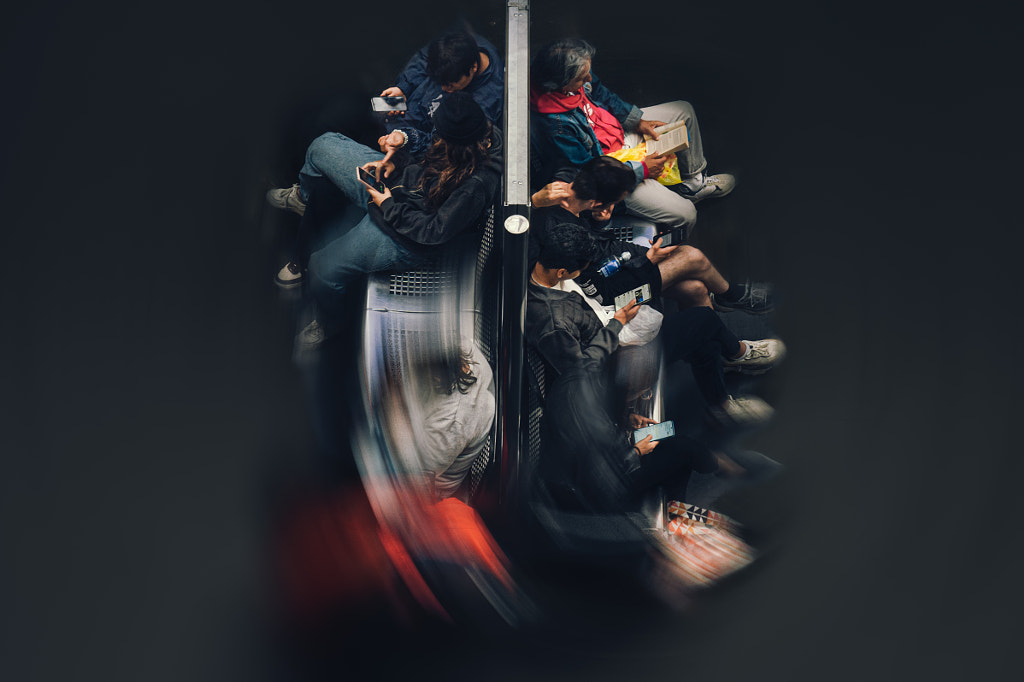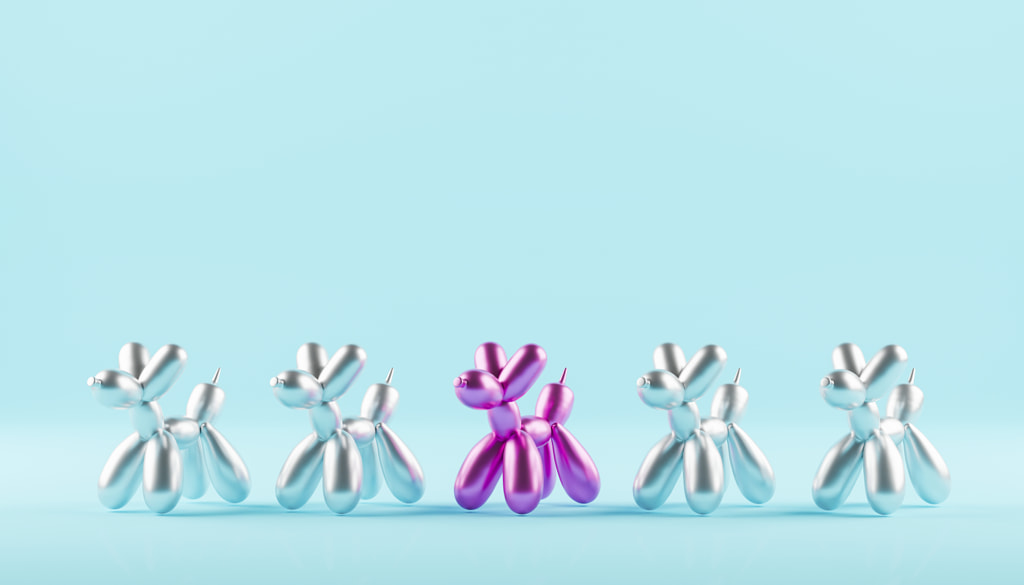This blog post is written by the team at The Photographer Mindset.
What Is “Imposter Syndrome” & How Does it Affect Photographers?
Have you ever felt like you have a difficult time taking ownership of your achievements? Do you consistently feel like a fraud and can’t believe that someone is actually paying you for your photography? Do you get a false sense that your weaknesses or insecurities will get exposed and that other photographers are more deserving of where they’re at in their careers? Do you feel like you know nothing compared to the majority of other photographers who seemingly have it all figured out? Lastly, do you have crippling perfectionism that affects your ability to complete your work?
If you’ve answered yes to some or all these things, you’re likely suffering from an invisible ailment that especially plagues creative individuals known as “Imposter Syndrome”. Before we talk about some remedies to mitigate and manage Imposter Syndrome, let’s first dig deeper into what imposter syndrome is and the mechanics behind this thought process so that we have a better understanding of what goes on in the frameworks of our minds when it occurs.
Many photographers face Imposter Syndrome on the daily and it is one of the reasons why photographers unknowingly sabotage their own paths to success. Imposter Syndrome is essentially a false reality that our minds create to convince us that we are unworthy or undeserving of a role, accomplishment, self-satisfaction, promotion, opportunity, etc. Even when we make substantial progress in our careers, photography, relationships, etc. the brain continually reminds us of our shortcomings and insecurities and fixates on those negatives as compromising threats to our preservation.
This is a defense mechanism of our 200,000-year-old brain. It naturally fixates on negative thoughts to protect us from harm. This is a useful tool in evolution for survival. As Neanderthals, if we focused on the alligators down by the river, we knew to tell the rest of the tribe and to avoid going to get drinking water out of pure survival. Our brains haven’t caught up and are still wired to constantly be looking out for threats and more so now, creating threats. In the modern age, the brain has created imposter syndrome to defend your ego and sense of self from rejection, loss, conflict, etc.
If your brain can convince you that where you are at in your career, the kind of role you’re in, etc. is undeserved then it can prevent you from ever having to potentially face pain. Your brain thinks it is protecting you by generating thoughts that make you never take any risks, never strive for more, and live in your comfort zone. If your brain can convince you to stay where you are, play it safe, and avoid uncharted waters, then it will never have to face the pains of rejection, conflict, and discomfort which it faultily deems as survival threats.
Now mix in a world where we are glued to our smartphones and are always being fed the absolute best images and videos. This is simply due to the nature of the attention economy and that the more engaging, absurd, or stunning a piece of content is, the more time we will spend within that certain app. When this happens, our brains become trained to believe that the very best images and videos are what is normal.
Think about it this way, theoretically, if you were constantly shown ads on TV or YouTube of people buying and driving Ferraris, but you never actually stepped outside of your house to see what the majority of people actually drove, you would easily be able to come to the conclusion that everyone must drive Ferraris.
This is a completely hypothetical scenario, however in this example, if I told you that Instagram and other social media apps tried their best to only show you the best of the best and shielded your attention from anything that remotely smelled of mediocrity, you would be able to see the scary parallel and the consequences of that in relation to mental health.
Once your brain begins to believe that most images posted online are world-class and that most photographers are out-of-this-world talented, we can spiral into a dark pit of comparison and unhealthy competition. We lose sight of the fact that in anything we do, we are only ever truly meant to compete with ourselves and become a better version of yesterday’s self. If we develop severe insecurities regarding our work and how we are externally perceived as a photographer from an early stage in our photography journey, it will only lead to needing to “unlearn” down the road as hurdles, adversity, and failure become more hard felt and painful instead of embraced.
Now that we have a better understanding of what causes imposter syndrome in photographers and what it actually is, let’s discuss some of the ways to mitigate these limiting beliefs and toxic thoughts so that we can focus on how to get to where we want to go on our photography journey.
1. Celebrate Wins And Success Regardless of How Big or Small They Are
Many people find it so easy to criticize themselves and take fault when something they were pursuing fails or doesn’t work out. It’s easy to be hard on yourself as your own biggest critic. However, many of these same individuals struggle to see and acknowledge their personal role in achievement. You must be able to fight through the discomfort of taking ownership of your accomplishments even if it is only partial ownership.
Certain individuals can feel awkward and uncomfortable noting their role in a successful endeavor because they either A) subconsciously feel like they really didn’t deserve it or B) they have humility and feel celebrating a win will make them appear arrogant and conceited. To point B I say, no one says that you must celebrate wins publicly. Whether you choose to broadcast your successes is entirely up to you and there are ways to share personal achievements online in ways that display confidence, pride, and assertiveness rather than arrogance.
However, if the limelight makes you feel uncomfortable, there’s no excuse to not celebrate in silence. I personally have a journal that I write in every single day. In one of the sections, I write down 4 wins that occurred to me or because of my efforts at the end of each day. I don’t care how big or small they are, I just find it good practice to remind myself before my head hits the pillow that I am making progress towards my photography goals, that I am improving in my run mileage, that I am landing more photography clients even when it doesn’t seem like it.
Not only do you finish your day with confirmation of all you’ve made happen for yourself, but you can flip back in the pages to 6 months ago and literally see your progress laid out in front of you. Get a journal and write 4 wins down every single day before you go to bed. Make a habit of it and watch your Imposter Syndrome fade while your confidence skyrockets over the weeks and months.
Here are some examples from my recent journal entries:
- I ran 14km today without stopping, my furthest yet.
- The podcast officially had the most monthly listens to date.
- I figured out an effective way to photograph Barn Swallows in flight.
- One of my outstanding photography invoices was paid.
To point A (feeling like you don’t deserve success) I say, recognize the warped paradox of succeeding in a goal or task and thinking that you don’t deserve any part in it. If you didn’t earn or deserve a win or at least part of it, then how come you didn’t lose?
When we lack confidence and have limiting beliefs, we literally look for excuses and reasoning that will attribute our accomplishments to someone or something else’s doing. For example, “My reel only performed well on Instagram because I copied someone else’s caption and hashtags” or “I only got this photography gig because my friend knows the business owner”. We zero in on one small factor of a larger picture to convince ourselves we’re not responsible for the overall success.
In the first example, the thought process should be “I created a really engaging piece of content that resonated with viewers. I was smart enough to identify another creator with a good caption and set of hashtags to help push that video to more people. I have learned how to cohesively blend originality with what’s already been proven to work”.
In the second example, the self-talk should be “I was clever enough to leverage my connection with a friend to acquire a photography gig. I understand that even though I have a connection, my prior work is good enough for them to hire me otherwise they wouldn’t. In this instance, I have also seen the power of good networking and will continue to focus on how to build the skill of fostering relationships.”
2. Institute Positive Affirmations That You Know to be True into Your Daily Self Talk
If you make a conscious effort to tell yourself things that you know to be true enough times, you will start to emulate and embody that positive belief in the form of confidence and elevated self-worth.
Some examples are:
– “I still have a lot to learn at my craft, but I’ve worked hard to get to the point I’m at in photography. I’ve watched hours of YouTube, edited timelessly in Lightroom, and made so many connections both friendly and professional.”
– “In my mind and in my peers’ minds, I produce high-quality work that consistently gets better over time. I may not be at the level of photographer “x”, but I’m better than I used to be. Therefore there is no limit to what I can achieve with my camera.”
– “I used to make $0 a month with my camera. Now I’m making $1,000 a month. There’s no reason that number can’t continue to rise if I continue to innovate my efforts.”
If you attempt to recite an affirmation to yourself that deep down you know not to be true, you will feel immediate discomfort saying it because you will know that you’re lying to yourself. This is also a great technique to identify areas of your life or photography practice that are lacking.
The hardest person to lie to is ourselves. If I try to state a positive affirmation about how much time I’ve spent in lightroom honing my editing skills and I’ve only spent an hour or two in the program all month, then I 100% should and will have trouble saying such an affirmation to myself. If this is the case, you should have a lightbulb moment that says “I’m lying to myself. Why am I lying to myself? I should do some self-evaluation there but in the meantime, I’m glad I uncovered this fact about myself. I should get to work in Lightroom and watch some tutorials.”
As you go about your day institute such affirmations at random into your routine. If you have some free time at a point during your day, take 2-5 minutes to be your own biggest cheerleader. As you build this routine you will need to do it less and less because you are effectively rewiring your personality and psyche to truly emulate these things about yourself that in your mind you know to be true.
When you say a true affirmation enough times, you begin to naturally embody a healthy forward momentum. Feel free to mentally say these things to yourself, it’s not necessary to speak out loud, but should you choose to do so, power to you!
3. Remind Yourself That You Are Not Special
You are not special. This may hurt your ego but it’s necessary to hear. It’s likely the very thoughts, concerns, and insecurities you feel are shared by hundreds of thousands, even millions of other people.
Because we live inside our heads all day and see ourselves subjectively, it is difficult to fathom that many people could possibly be feeling and thinking in a similar way we are. As part of the human condition, we can feel a complete sense of uniqueness, and it would be near impossible for others to completely grasp the way we are thinking or feeling.
Reminding yourself that you aren’t special has incredible benefits. It allows you to develop a sense of humility which is always good and it forces you to realize that the only difference between yourself and those you look up to is work ethic, efficiency, and the ability to intelligently recognize opportunity. Lastly, it allows you to find solace in the fact that every single person in the world has insecurities, thoughts of doubt, and faces adversity. There is not one single person who has all the pieces of the puzzle put together and is without any form of struggle.
When you realize that your hindering self-thought processes regarding inadequacy or self-worth is equally shared by other people, you remove the ability for your mind to mentally isolate you. This isn’t to say that because other people have similar thoughts of Imposter Syndrome that you should just accept a version of yourself that backs away from risk, has low confidence, and makes excuses. It simply opens your eyes to the fact that everyone struggles together in one form or another and that even though you acknowledge that your current way of thinking or your current perception of yourself is harmful, you don’t have to accept it. You can begin to take steps to alleviate that self-inflicted mental pain.
The next time you catch yourself in a spiral of negative self-talk remember these three things. They have helped me tremendously and allow me to constantly remind myself that while I have many areas to improve upon, my current placement along my photography journey has been rightfully earned. It is important to also note that different forms of Imposter Syndrome will likely always arise throughout your journey.
The goal isn’t necessarily to crush Imposter Syndrome once and for all. It’s to develop, practice and refine the mental skills needed to be able to see yourself more objectively so that you can get out of your own damn way and avoid spiraling into the lonely pit of self-loathing, self-doubt, and limiting beliefs.
Let us know which of these techniques you are most excited to start applying to your own journey or which ones have helped you out the most so far!
Not on 500px yet? Sign up here to explore more impactful photography.
The post 3 Ways to Handle Imposter Syndrome as a Photographer appeared first on 500px.








